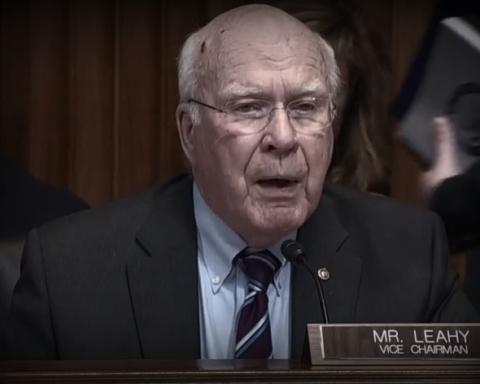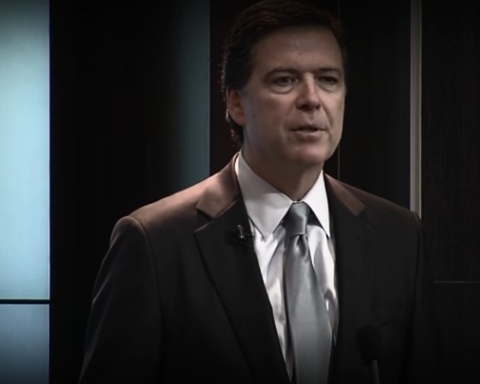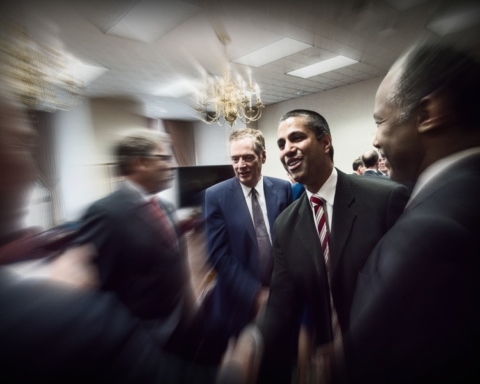With a little over a month to go until the Federal Communications Commission votes on new Net Neutrality rules, congressional Republicans are trying to preempt the commission’s actions with legislation that they claim will keep the internet open.
But in a subcommittee hearing on Wednesday, a host of witnesses representing businesses and interest groups warned the lawmakers who invited them that their actions are misguided.
“We are concerned that the proposal does not ban all types of discrimination online, leaving loopholes that could easily be exploited,” said Chad Dickerson, the CEO of the online marketplace, Etsy.
He told lawmakers he was also concerned that the draft bill “would undermine the agency’s ability to promote rapid broadband deployment across the country.”
Similar concerns extend to much larger online retail outlets. Paul Misener, Amazon’s Vice President of Global Public Policy told the committee that their draft proposal “could be interpreted to undermine” the effectiveness of Net Neutrality protections.
While the proposal put forth by House and Senate Republicans would ban paid prioritization, blocking, and throttling by internet service providers, it would also strip the FCC of significant power. Conservatives’ aim is to stop the FCC from reclassifying the internet as a telecommunications service under Title II of the Communication Act—a distinction that would grant the regulatory body more authority to regulate ISPs.
“We have a very important choice to make” committee chairman, Rep. Greg Walden (R-Ore.) said in his opening remarks. He said that Congress can either let the FCC “use a statue from another era to cobble together a regulatory scheme, or we could do our job and draft a law for this century through open and transparent legislative process.”
But opponents say Republicans’ proposal would do anything but modernize internet regulations.
“What is abundantly clear in the majority’s proposal is to purposefully tie the hands of the FCC by preventing it from reclassifying broadband under Title II,” said the committee’s ranking member, Rep. Anna Eshoo (D-Calif.).
“If our goal is to have a system that guarantees equal access of an important internet to everyone, and it should, who’s going to carry out and oversee this?” she asked.
“This proposal carries an enormous bias against enforcement, which in turn doesn’t give consumers a leg to stand on,” she added.
Jessica Gonzalez, the Executive Vice President of the National Hispanic Media Coalition, also testified against the bill at Wednesday’s hearing.
“The discussion draft considered at this hearing suffers from numerous flaws that, unfortunately, make it an inferior vehicle for protecting consumers and the Internet compared to FCC action under Title II,” she told lawmakers.
“Far beyond simply tying the Commission’s hands to confront present and future threats to internet openness, the language in the discussion draft calls into question the role of the FCC in the future of broadband policy and consumer protection,” Gonzalez added, echoing the worries of Rep. Eshoo.
One witness, Michael Powell–the former Bush-appointed Chairman of the FCC and now President of the preeminent cable television trade group, the National Cable & Telecommunication Association–said he supported the committee’s proposal.
“I firmly believe that the proposed legislation under review today achieves the aims of every stakeholder in the Internet ecosystem,” Powell said. He then, on behalf of his cable TV associates, took aim at the FCC.
“We will continue to reiterate our unwavering opposition to any proposal that attempts to reclassify broadband services under the heavy-handed regulatory yoke of Title II.”
But Powell didn’t endorse doomsday scenarios laid out by some right-wing opponents of the FCC who claim that Title II reclassification would devastate private investment in the industry.
“I think all hyperbole aside, the issue isn’t whether people will invest,” said Powell. “Of course they will, they have businesses to run.” He claimed, however, that new fees associated with reclassification could dampen investments in faster networks.
The Senate is also hosting a hearing on Net Neutrality legislation on Tuesday.
The FCC’s proposal is slated for a vote on February 26th.





